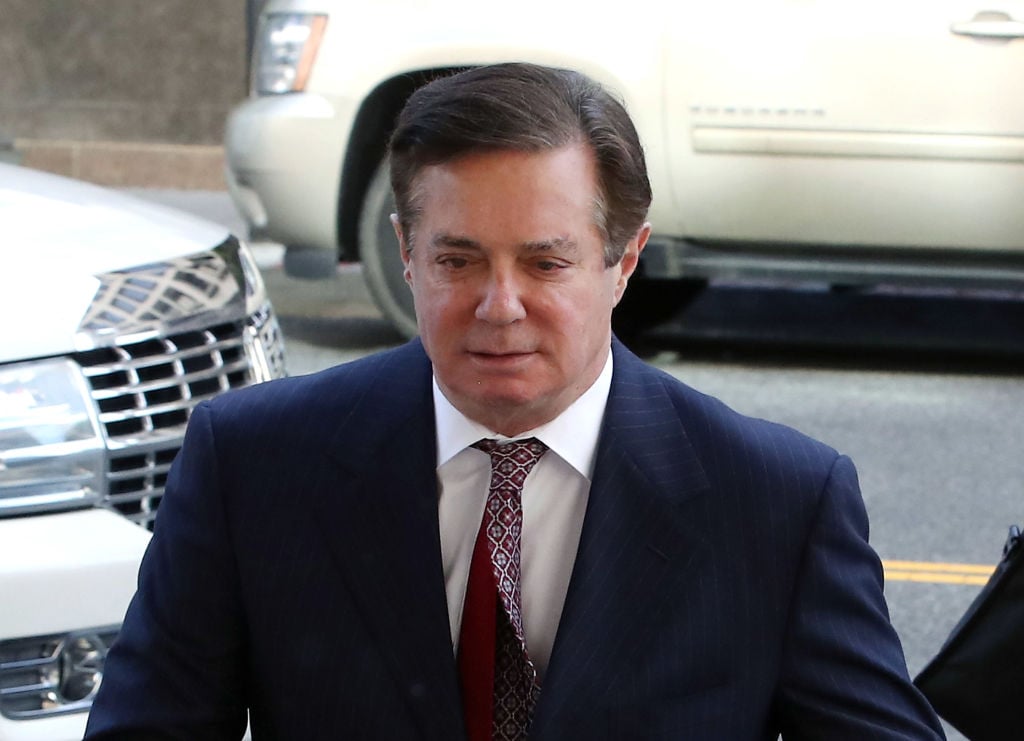The word “bagman” has fallen out of common usage over the years, which is a damned shame. It’s a perfect word for the era: According to Merriam-Webster, a “bagman” is defined as “a person who on behalf of another collects or distributes illicitly gained money; an intermediary in an illicit or unethical transaction.”
Sound like anyone you’ve seen in the news lately?
So long as corruption has existed in the human hive, there have been bagmen to do the dirty work and move the money. If you were a contractor in ancient Rome looking to get a piece of the action on that new Coliseum deal, some version for the age — a hominis bulgae, if you will –would grease the skids to the doorstep of an influential senator on the take.
Juicy historical parallels are, to me, better than a cold peach on a hot day. This one is especially sweet and twice as timely. Back in the wildly corrupt 19th-century days of Tammany Hall, dirty money was often carried from person to person in actual bags, hence the name. Tammany’s top bagman was a chair-maker named James H. Ingersoll, who was business partners with the Hall’s most notorious leader, William “Boss” Tweed.
Ingersoll helped Tweed and his Tammany cohorts steal millions of dollars for the purposes of bribery and personal enrichment, often siphoning the cash through shady real estate deals and properties that did not actually exist. The money would find its way into Ingersoll’s account, whereupon it was disbursed in various bags to various swells in various parts of the city.
The New York Times and Harper’s Weekly eventually blew the lid off the Tammany machine, and James Ingersoll’s lucrative bagman career was over. He was convicted on two counts of forgery in 1872 and spent two and a half years in jail. He was pardoned in 1875 on the condition that he testify for the state in the second corruption trial of Tweed; the first had ended in a hung jury. Ingersoll did exactly that, and “Boss” Tweed ultimately died of pneumonia in the Ludlow Street Jail in 1878.
We don’t say “bagman” anymore; the papers today would call James Ingersoll an “embezzler,” a “fixer” or a “money-launderer.” Ingersoll was all those things, but language has a tendency to drift over time, especially in matters of the law. “Graft” becomes “corruption,” “grifter” becomes “politician,” and “emolument” becomes some Russian asbestos baron’s room service tab at the Trump International Hotel.
In the end, of course, a bagman is a bagman is a bagman, and we are swimming in them these days. One such just testified against Donald Trump’s former campaign manager, Paul Manafort, who is on trial in a Virginia courtroom on charges of tax and bank fraud. If Manafort is ultimately convicted, it will be in large part because of testimony provided to the jury by his own bagman, Rick Gates, who cut a deal to save himself just like James H. Ingersoll did a century and a half ago.
The alleged crimes of Paul Manafort are Byzantine in their complexity, but ultimately quite simple. For many years, Manafort performed lucrative “consulting” work for powerful Russian interests like billionaire aluminum magnate Oleg Deripaska and Viktor Yanukovych, the pro-Russian former president of Ukraine.
Much of this work involved hiding illicit Russian money by laundering it through a variety of highly questionable real estate ventures. The money was then moved around via shell companies with no employees and then hidden by law firm confidentiality rules and deeply secretive bank accounts in Cyprus.
Manafort was paid tens of millions in fees along the way, which he also hid in offshore accounts to avoid paying US taxes. His business partner, Rick Gates, assisted him in this, disbursing the hidden money to Manafort by disguising it as “loans.” Gates also stole millions of dollars from Manafort along the way, a fact he has admitted to in open court. Whether this helps or harms Manafort in the eyes of the jury remains to be seen.
In the age of Citizens United, most everyone understands theoretically how rigged, bought and corrupt our political system has become. Very Big Money does what it wants and gets what it wants, no matter what country it comes from. The trial of Paul Manafort and the galling testimony of Rick Gates are not theoretical, however. This is, to paraphrase Morpheus, the desert of the real.
“It’s not clear yet how Gates’s testimony will affect the outcome of the trial,” writes John Cassidy for The New Yorker. “But his time on the witness stand provided an invaluable public lesson in how tax evasion, money laundering, and political corruption work. In many places, these practices are denuding tax bases, corrupting a large class of professional enablers, and undermining public confidence in the political and financial systems.”
Special Counsel Robert Mueller has been investigating whether Trump’s 2016 presidential campaign colluded with Russian state interests to affect the outcome of the election. It is widely believed that, in pursuit of answers, Mueller is also investigating Trump’s long-standing financial ties to a variety of shady Russian interests. James Ingersoll knew it full well: Real estate is the best place to clean dirty money.
Rick Gates is a confessed bagman. Paul Manafort is an accused bagman. Whose bag is Donald Trump holding? Like as not, we shall find out before the snow flies. We watch, we wait.
Join us in defending the truth before it’s too late
The future of independent journalism is uncertain, and the consequences of losing it are too grave to ignore. To ensure Truthout remains safe, strong, and free, we need to raise $50,000 in the next 10 days. Every dollar raised goes directly toward the costs of producing news you can trust.
Please give what you can — because by supporting us with a tax-deductible donation, you’re not just preserving a source of news, you’re helping to safeguard what’s left of our democracy.
